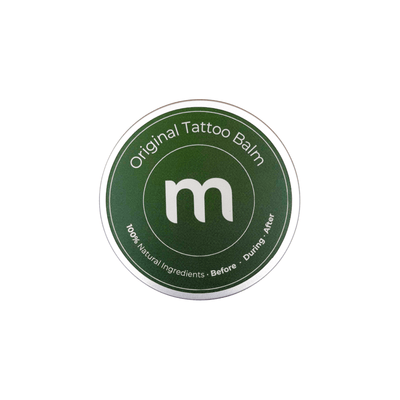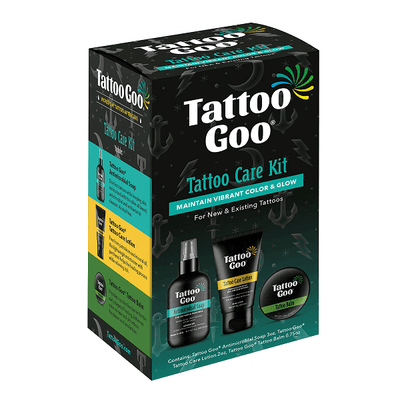While the art of tattooing is undoubtedly rewarding, it's essential to recognise that tattooing is a skill that takes dedication and years of practice to master. Unfortunately, many beginners make common mistakes that can have lasting consequences for both the artist and their clients.
In this article, we will explore some of the most prevalent beginner tattoo artists fails and provide tips on how to avoid them.
Inadequate training
One of the most significant mistakes a beginner tattoo artist can make is not investing enough time and effort into proper training. Tattooing is not something you can pick up overnight or learn from watching a few YouTube tutorials.
Moreover, a lack of comprehensive training can lead to poor technique, safety issues, and unsatisfied clients. It is crucial to seek out reputable tattoo apprenticeships or formal training programs to learn the fundamentals of tattoo artistry from experienced professionals.

Not properly cleaning equipment
One of the biggest mistakes beginner tattoo artists make is not properly cleaning their equipment. This includes tattoo needles, tubes, and even the work area. Not only is this unsanitary and can lead to infections for clients, but it can also damage your equipment and affect the quality of your work.
To avoid this mistake, always make sure to thoroughly clean all of your tools in between each client. Invest in high-quality cleaning products specifically made for tattoo equipment, and follow proper sterilisation procedures. Additionally, keep your studio clean and free of clutter to avoid cross-contamination.
Skipping the stencil
Another common mistake is skipping the stencil process and freehanding designs directly onto the skin. While it may seem like a time-saver, this can lead to uneven lines and proportions, resulting in a less-than-perfect tattoo.
Always take the time to create a stencil and transfer it onto the skin before beginning the actual tattooing process. This will ensure that your design is accurate and symmetrical and give you a clear guideline to follow while tattooing.
Not understanding skin composition
Tattooing is not just about drawing on skin – it's also about understanding skin composition and how it reacts to being tattooed. Beginner artists may overlook this crucial aspect, leading to issues such as blowouts or uneven healing.
Be sure to educate yourself on the different types and layers of skin, as well as how they heal. This will help you make informed decisions about needle depth and other techniques that can affect the final result of your tattoo.
If you're interested in learning more about how to tattoo different skin tones for best results, read our comprehensive guide on the topic.

Not practising proper technique
Tattooing is a physically demanding skill that requires precision and control. Without proper technique, artists may struggle with achieving clean lines, shading, and overall quality in their work.
It's vital to practice good hand positioning, needle control, and stretching techniques to ensure the best results for both you and your clients. Don't be afraid to seek advice from more experienced artists, as they can provide valuable insight on improving your technique.
Poor design and placement
Inexperienced tattoo artists may struggle with creating well-thought-out designs and placing them correctly on the client's body. Tattooing is a permanent form of art, and mistakes in design or placement can lead to regret and costly cover-up or removal procedures.
Working closely with clients to understand their preferences, offering professional design suggestions, and carefully planning the tattoo's placement to ensure a satisfying outcome is essential.
Overconfidence
Overconfidence can be detrimental to a beginner tattoo artist's career. Some may rush into complex designs or attempt styles they are not yet proficient in, leading to disappointing results. It's important to be realistic about your skill level and gradually build confidence by mastering the basics before tackling more advanced techniques or designs.
Ignoring aftercare instructions
A crucial aspect of the tattoo process is proper aftercare. Beginner tattoo artists often focus solely on the tattooing process and neglect to educate their clients on how to care for their new ink.
Moreover, failing to provide aftercare instructions can lead to infections, fading, and client dissatisfaction. Ensure that you provide clear and comprehensive aftercare instructions and suggest aftercare products to help clients maintain the longevity and vibrancy of their tattoos.

Rushing through the process
Finally, one of the most common mistakes for beginner tattoo artists is rushing through the process. Tattooing takes time and patience – trying to speed through it can result in sloppy work and unhappy clients.
Always take the necessary time to properly prepare for a tattoo, including setting up your station, cleaning and sterilising equipment, and creating a stencil. During the actual tattooing process, work at a steady pace and take breaks when needed.
Conclusion
Tattoo artistry is a unique and rewarding career, but it has a steep learning curve. Avoiding these common beginner tattoo artists' fails will not only improve the quality of your work but also protect the health and satisfaction of your clients.
Remember that becoming a skilled tattoo artist takes time, dedication, and a commitment to continuous learning and improvement. By focusing on proper training, equipment, hygiene, design, placement, humility, and aftercare, you can set yourself on the path to becoming a successful and respected tattoo artist.





























































 Studio supplies
Studio supplies












 Power & batteries
Power & batteries







 Aftercare
Aftercare



















 Apprentice
Apprentice


 Piercing & jewellery
Piercing & jewellery







 PMU supplies
PMU supplies



 New arrivals
New arrivals
 Gift vouchers
Gift vouchers
 Shop all
Shop all










































